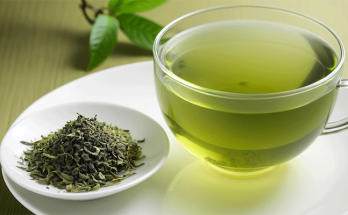
Gout, a form of arthritis, can be an excruciatingly painful condition that affects the joints, often targeting the big toe. If you find yourself grappling with gout, you’re not alone, and there are practical steps you can take to alleviate the discomfort. In this article, we’ll explore effective strategies on how to get rid of gout, providing you with valuable insights for a more comfortable and pain-free life.
Gout: A Brief Overview: Gout is caused by the buildup of uric acid crystals in the joints, leading to inflammation and intense pain. These crystals often form when there’s an excess of uric acid in the bloodstream, causing discomfort and restricted mobility. Now, let’s explore some practical ways to manage and prevent gout attacks.




1. The Power of Water
One of the simplest and most effective ways to manage gout is by staying well-hydrated. Water helps to flush out excess uric acid from the body, preventing the formation of crystals in the joints. Aim to drink at least eight glasses of water daily, and consider incorporating hydrating foods like watermelon and cucumber into your diet.
2. Watch Your Diet: Say No to Trigger Foods
Certain foods can trigger gout attacks by increasing uric acid levels. Purine-rich foods like red meat, organ meats, and shellfish should be consumed in moderation. Additionally, cutting back on sugary beverages and limiting alcohol intake, particularly beer can significantly reduce the risk of gout flare-ups.
3. Cherries: A Natural Anti-Inflammatory
Nature has provided us with a potent ally in the fight against gout – cherries. These vibrant fruits contain compounds that possess anti-inflammatory properties, helping to reduce pain and inflammation associated with gout. Incorporate fresh cherries into your diet or consider cherry juice for a delicious and natural remedy.
4. The Benefits of Vitamin C
Vitamin C has been linked to lower uric acid levels in the body. Include vitamin C-rich foods such as citrus fruits, strawberries, and bell peppers in your daily meals. Alternatively, you may opt for a vitamin C supplement after consulting with your healthcare provider.
5. Maintain a Healthy Weight
Carrying excess weight can contribute to gout attacks, as it puts additional stress on the joints. Engage in regular physical activity to maintain a healthy weight and promote overall joint health. Low-impact exercises like swimming, walking, and yoga can be particularly beneficial for individuals with gout.
6. Epsom Salt Soaks: Soothing Relief
Epsom salt, known for its magnesium content, can provide relief from gout symptoms. Soaking the affected joint in a warm Epsom salt bath can help reduce inflammation and ease pain. Make this a part of your routine for a calming and therapeutic experience.
7. Medications: Consult Your Healthcare Professional
In some cases, medications may be necessary to manage gout symptoms. Nonsteroidal anti-inflammatory drugs (NSAIDs) and prescription medications like colchicine can be prescribed by your healthcare provider to alleviate pain and reduce inflammation. It’s crucial to consult with a medical professional before starting any medication regimen.
8. Rest and Elevate: Give Your Joints a Break
When a gout attack occurs, providing your joints with ample rest is essential. Elevating the affected limb can help reduce swelling, and avoiding putting weight on the joint allows for a speedier recovery. Combine rest with other remedies for a comprehensive approach to gout management.
Taking Charge of Your Gout Journey
In conclusion, managing and preventing gout involves a combination of lifestyle changes and targeted remedies. By staying hydrated, making dietary adjustments, and incorporating natural remedies like cherries and Epsom salt soaks, you can take proactive steps towards a gout-free life. Remember to consult with your healthcare provider for personalized advice and medication recommendations. With a mindful approach to your health, you can pave the way for lasting comfort and improved joint function.









